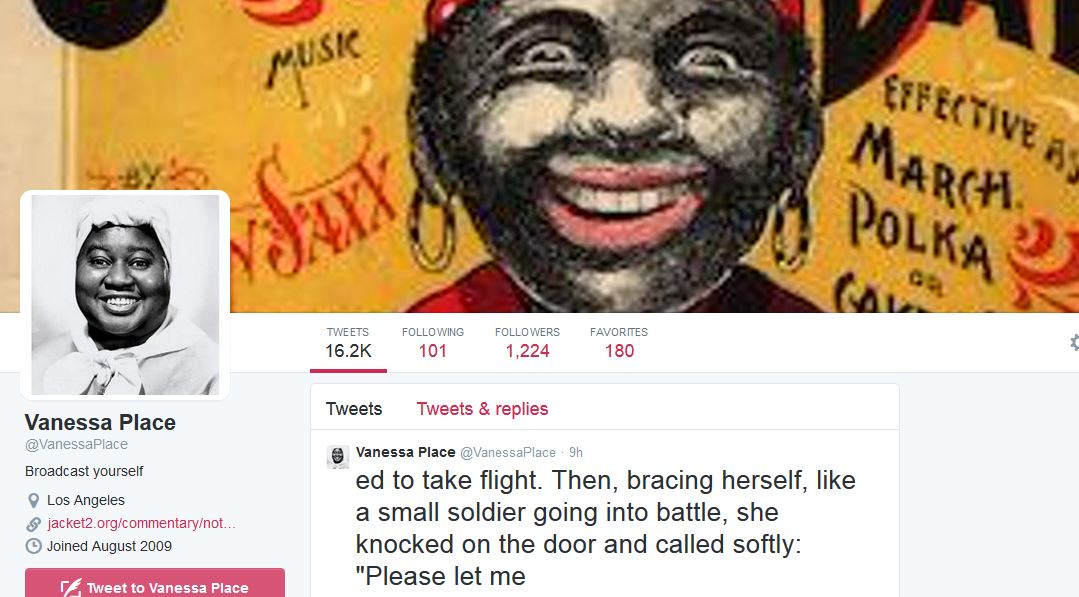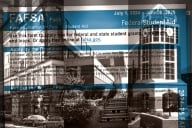You have /5 articles left.
Sign up for a free account or log in.
The Association of Writers and Writing Programs normally comes to the defense of controversial writers. On Monday, however, the group announced it has kicked Vanessa Place, a prominent and sometimes controversial poet, off the planning committee for the association's 2016 meeting.
The association, which represents more than 500 campus-based writing programs, as well as thousands of writers, acted after many members pushed for Place's removal. They object to her Twitter account (below right), on which she is posting, line by line, the text of the novel Gone With the Wind. The Twitter feed also features a photograph of Hattie McDaniel as the profile picture. McDaniel was the actress who won an Academy Award for her portrayal of Mammy in the film version of the novel.
Place is a poet, artist and criminal lawyer who has won critical praise for her work, much of which defies conventions. Some see her Twitter account as a form of art; many who wanted her off the committee of AWP (as the group is known) called her project racist, whatever its intentions.

A petition that was widely circulated among writers and writing professors demanded Place's ouster.
"We find it inappropriate that Vanessa Place is among those who will decide which panels will take place at AWP Los Angeles," the petition states. "We acknowledge Place's right to exercise her creativity, but we find her work to be, at best, startlingly racially insensitive, and, at worst, racist. We do not believe it is right that she have a hand in deciding whether panels having to do with race and identity will be a part of next year's AWP. Her recent work with Gone With the Wind reinscribes that text's racism -- she does not abate it -- in the flesh of every descendant of slaves…. She furthers her career on the backs of black ancestors -- the hands that filled the master's pockets now fill hers. We ask that you remove her from her position of authority over writers of color."
Some of those who pushed for Place's removal are praising AWP. Others, however, are going online to question why AWP referred to "controversy" and not "racism" in describing Place's Twitter feed. One tweet said: "By calling racism a 'controversy' AWP is making a clear political choice that favors the white status quo."
Others, however, are aghast that a writing group has taken action against one of its members for… writing.
Dale Peck, a novelist who teaches writing at the New School, said via email: "Well, I think that when AWP claims it 'believes in freedom of expression,' it’s pretty obviously lying."
Both Place and officials of AWP did not respond to requests for comment.
But late Monday Place published on her Facebook page an “artist's statement” on her project. She said in the statement that she was breaking with her practice of many years of declining to “explain or apologize for my art.” She said she views her project as a critique and analysis of Gone With the Wind, and that she believes the novel to be a “profoundly racist text.” She said, “The book's true love story is not between Rhett and Scarlett, but white America's affair with self.” She said her Twitter project is trying to show “the whiteness behind the blackface” of the novel. She said she was sorry her work hurt some black people, but said that was not its intent. Rather, she wanted to shake up all people about the messages of the book. “This is a necessary cruelty, and I believe in necessary cruelties,” she wrote.








